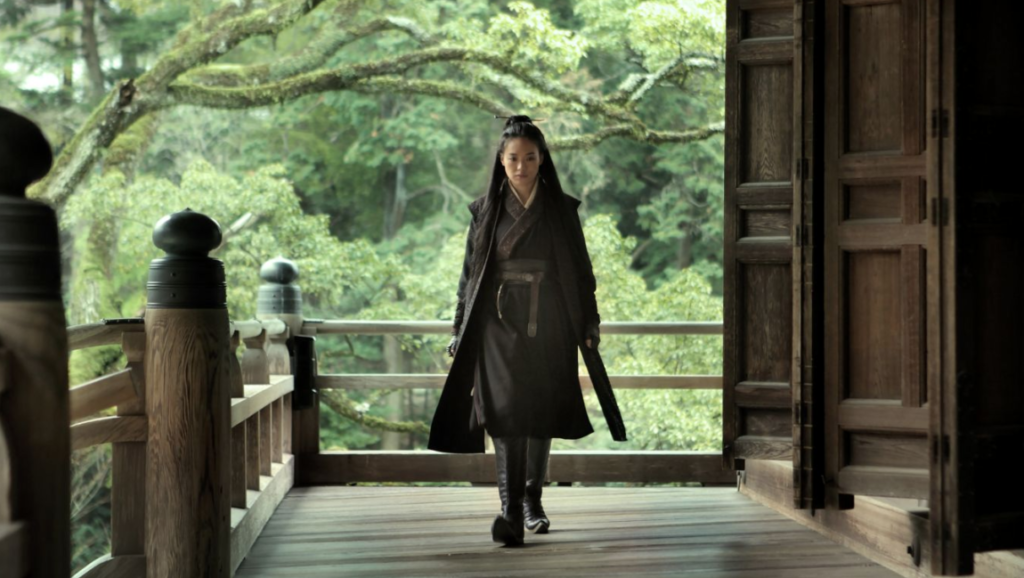At the core of Hou Hsiao-hsien’s cinema is a deep investment in the rift formed between an independent Taiwan and a possessive mainland China. Tender stories of unrequited romance (Three Times, Flowers of Shanghai) become bracingly political, and coming-of-age stories (The Boys from Feng Kuei, Millennium Mambo) gain the added pathos of exploring uncertain national identities. Crucially, these subtexts never overwhelm Hou’s characters, many of whom have been informed by his own youth spent in a rapidly changing Taiwan. In recent years, that’s included the less explicitly autobiographical Hou surrogates played by Shu Qi, whose screen presence — gorgeous and haunted, graceful even when stone still — represents the perfect analogue for the director’s painterly, meditative formalism.
In The Assassin, Shu plays Nie Yinniang, a young woman cast out of her home and trained in the art of the kill in the waning years of the Tang dynasty. Her latest mark, per a chilly handler frustrated with the moral conscience that compromised Yinniang’s last job, is a man to whom she was once betrothed, her cousin Lord Tian Ji’an (Three Times co-star Chang Chen). Yinniang’s reticence toward her role as contracted killer becomes a mirror gesture of Hou’s tentative adoption of action beats. But like his brutally efficient heroine, when action is deemed necessary, its execution is of a consistently high caliber: sharp, practical, fleeting bursts of movement that disturb the film’s serene compositions like ripples across a pond.
a critique of warring states, puppet governance, and the resulting human casualty
This makes for a quantitatively different form for Hou, but no greater departure than that of his last feature, the French-language Flight of the Red Balloon. While that film’s simple narrative — a harried single-mom balancing her passion for art with the obligations of raising an adolescent child — framed the study of a different culture’s representational cinema, The Assassin returns Hou to his own. Filtering in not only the wuxia flourishes that have dominated discourse around the film, but also the palace intrigue of historical gu zhuang dramas, Hou mounts a timeless critique of puppet governance, warring states, and the resulting human casualty.
Shot in the contrast-heavy black-and-white chosen for the film’s economical prologue, The Assassin opens on two donkeys tied to a tree, a slow pan revealing their masters — Yinniang and her teacher — looking off in the opposite direction. It’s an image that calls attention to the subservient first, and the ambivalence of the powerful second, a historical consideration that transcends period trappings, much like the etymological significance of the two jade amulets Yinniang and Tian Ji’an possess. Most impressively, Hou and cinematographer Mark Lee Ping Bin use the expansive canvas of The Assassin’s mis-en-scene to externalize the philosophy of the characters: the billowing fog and jutting landscapes that frame Yinniang’s duplicitous teacher, the low rumble of percussion that fills the Imperial court’s austere crimson and gold halls, and most important, the tranquil stillness and soft-focus of the rural villages, striving to exist outside all this conflict.

